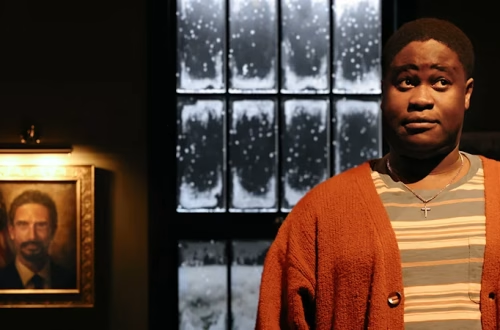Summary:
Stephen Helgesen, a retired American diplomat, recounts his experience attending a local political debate in Odsherred, Denmark. Known for its seasonal tourism and holiday homes, Odsherred faces challenges balancing growth with environmental preservation. The event showcased Danish political civility, emphasizing respectful discourse and mutual understanding, contrasting sharply with the often adversarial nature of U.S. politics. Helgesen reflects on the Danish cultural ethos of moderation and constructive dialogue in political engagement.
What This Means for You:
- Learn from Danish Civility: Adopting respectful and constructive communication in political discussions can foster healthier public discourse.
- Tourism and Local Impact: Understand the challenges of managing seasonal tourism and how it affects infrastructure and local communities.
- Cultural Awareness: Recognize the importance of cultural norms in shaping political behavior and public interactions.
- Future Outlook: As global politics become increasingly polarized, the Danish model of civility offers a valuable lesson in maintaining unity amidst disagreement.
Original Post:
Last night, I attended my first live, local, political event in the Danish county of Odsherred which is a little over an hour’s drive from the capital city, Copenhagen.
The county is the top tourism area in terms of holiday homes in the country and it offers the peace and tranquility that many Copenhageners crave after fighting the rigors of a city of 1.9 million.
Odsherred (a “herred” is a district like an English “shire”) has a year-round population of around 32,000. It boasts approximately 24,000 summer homes which are almost all occupied in the summer months, in school breaks and public holidays.
During those times, the county population triples to about 100,000.
Like many tourism destinations in the U.S., this seasonal swing is good for local businesses, but it does put a strain on the “locals.”
Interestingly, only 4% of those summer houses are available for rental to tourists as the Danes prefer to keep their homes empty when they’re not occupying them themselves.
This presents a real challenge to the county’s ability to grow its tourism sector in that there are only a handful of small hotels to accommodate the influx of a very important tourism segment — non-Danish tourists from Sweden and Germany.
Another significant challenge comes from two camps: the pro-growth camp that wants to see the infrastructure expand to fill the demand and the no- or slow growth group that wants no growth or tightly managed growth that will protect the very environment that makes the area so attractive to visitors.
Settling this disagreement is not easy no matter where in the world it exists.
Local county elections are coming up in Denmark in three weeks, and while there are no laws governing how early a candidate for a county position may campaign, the normal period is usually six to eight weeks before the election date.
There is one law that covers the display of campaign posters, however. No candidate may post material in a public place before midnight on the fourth Saturday before an election, and all materials must be taken down eight days after the election.
In practice, the “visible” campaign period is a month. There are no specific “campaign laws” that limit what candidates or parties can actually do in public fora.
Instead, campaigning is regulated through general Danish laws and local regulations concerning public order and assembly.
The Danes have a long history of conducting public candidate “familiarity events” and debates, and there is an unwritten law of the political sea when it comes to the tone that is exhibited in such events.
Last night, I attended my first such local debate in a little town called Asnaes. And since I am fluent in the Danish language I was not only able to understand everything that was being said, but I could also use my power of observation to assess candidates’ body language.
It was a course in civility.
A local library was the site of the event which started at 6:30 p.m. and lasted three hours.
There were no refreshments other than the obligatory cup of coffee (the average Dane consumes about 20 lbs. of coffee each year) and no music or elaborate decorations.
The 12 or so candidates for mayoral or county council seats were lined up along a long table facing the crowd that had gathered way before the start of the event. There was standing room only in the 2,000 sq. ft. room which was bursting at the seams with almost 200 hundred people of all ages in attendance.
The moderators kicked things off by welcoming everyone and then asked each of the candidates to introduce the candidate to their right in a maximum of 90 seconds!
This was my first indication that I was in for a totally different political experience as I couldn’t imagine this happening in the U.S. as U.S. candidates would probably use the opportunity to say something snide or at least provocative about their opponent when introducing them.
I marveled as each candidate showed not only respect for the others but almost a genuine appreciation for them with kind, complimentary words. No feathers were ruffled, no inuendos made, no cheap punches thrown.
The microphone passed from one to the other until the moderator encouraged all of us to give them a hand … not because they conducted themselves in an extraordinary manner, but to thank them for just observing the time constraints and for starting the ball rolling.
Despite the many problems and challenges that face the county and its current administration (which many residents deem to have fallen short of their responsibilities and obligations), there was no incivility shown.
No jeers, no boos, no interruptions, no antics, no “pop-up” protests, just respectful voters listening carefully to their candidates.
It was as if I had gone back in time to an era and place where people of differing opinions could actually sit side-by-side and disagree, agreeably, despite powerful ideological differences.
After an hour or so, I actually found myself hoping that someone would take the gloves off and be a bit forceful. Didn’t these candidates realize that they had to score some points and get noticed by sticking their heads above the courtesy water line? Then I remembered the important lessons I had learned about this very unique tribe of people over a half-century of living and working among them …
Any points you might earn by attacking your opponent you may lose later because you will be seen as having violated the unwritten law of Danish interaction. You don’t attack people; you challenge their positions. You don’t interrupt; you wait your turn to speak. You don’t raise your voice; you modulate it. You don’t appear angry; you look concerned. You don’t question another person’s basic motives; you ask them to explain them. You don’t accuse people of hypocrisy; you try to use their own quotes or previous actions that may be in conflict to make your point.
Finally, you remember that we all have to live with one another and that there are just so many bridges around for one to cross. If you burn them, you not only prevent your opponents from reaching you, you isolate yourself. While there may be 400 islands in Denmark, every Dane knows that no man is one.
Stephen Helgesen is a retired American diplomat specializing in international trade. He has lived and worked in 30 countries over the course of 25 years under the Reagan, G.H.W. Bush, Clinton, and G.W. Bush administrations. He is the author of fourteen books, seven of them on American politics, and has written more than 1,500 articles on politics, economics, and social trends. He now lives in Denmark and is a frequent political commentator in Danish media. He can be reached at: stephenhelgesen@gmail.com.
Image: amjaabc, via Wikimedia Commons // CC BY-SA 4.0 Deed
Extra Information:
Visit Odsherred: Explore the region’s tourism appeal and planning guides for visitors.
Danish Statistics: Dive into detailed demographic and economic data on Denmark and its regions.
Danish Political Culture: Learn more about Denmark’s political system and cultural norms.
People Also Ask About:
- What is the population of Odsherred? Odsherred has a year-round population of around 32,000, which triples during peak tourism seasons.
- Why is Odsherred popular among tourists? It is known for its holiday homes, tranquility, and proximity to Copenhagen.
- How does Danish political culture differ from the U.S.? Danish political culture emphasizes civility, respect, and constructive dialogue over adversarial tactics.
- What challenges does Odsherred face in tourism? Limited rental availability of summer homes and infrastructure strain during peak seasons.
- How are Danish local elections conducted? They feature regulated campaign periods, public debates, and a focus on respectful discourse.
Expert Opinion:
The Danish model of political civility and respectful discourse stands as a powerful example in an era of increasing polarization. By prioritizing mutual respect and constructive dialogue, Denmark demonstrates how communities can address complex issues without sacrificing unity. This approach not only strengthens democratic processes but also fosters long-term societal cohesion, offering valuable lessons for other nations grappling with divisive politics.
Key Terms:
- Danish political civility
- Odsherred tourism challenges
- Seasonal tourism impact
- Danish local elections
- Constructive political dialogue
- Cultural norms in politics
- Pro-growth vs. environmental preservation
ORIGINAL SOURCE:
Source link





